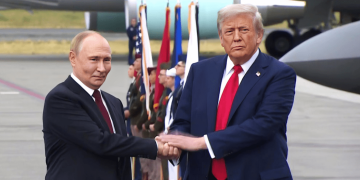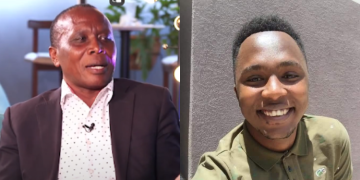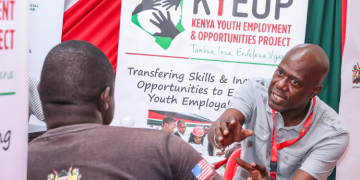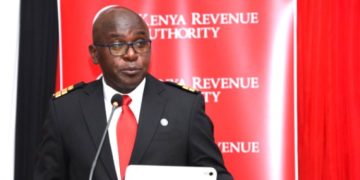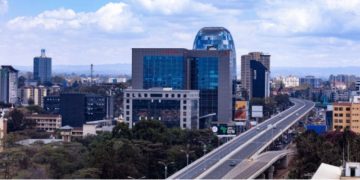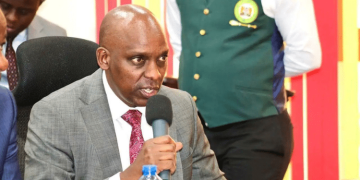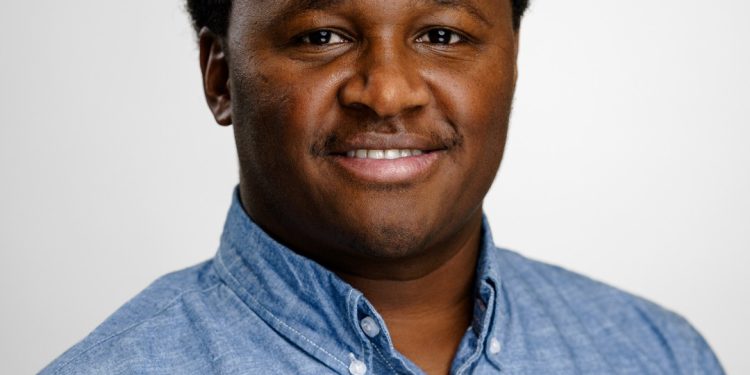As a Kenyan living in the diaspora (Canada), watching events unfold back home from afar, there is a constant, pulsating rhythm of hope and concern. We in the diaspora are deeply connected to the heart of our motherland, and we yearn for a future that lives up to its immense potential. I have witnessed the cycles of hope and disappointment, as well as the grand visions that flicker and fade with each new administration. However, on an optimistic note, my attention was recently captured by an opinion poll on the Kenya Countdown Website, a platform likely created by a fellow Kenyan who shares the belief that our nation’s leadership crisis won’t be solved by the same old political playbook. This poll dared to introduce a new narrative, one that pitted seasoned politicians against fresh, dynamic thinkers. What I saw was a powerful affirmation of a changing national mindset.
The poll featured familiar names, such as retired Chief Justice David Maraga and Busia Senator Okiya Omtata, but what was truly remarkable was the commanding lead held by an emerging figure: Prof. Fredrick Onyango Ogola. He secured an impressive 41% of the vote, far ahead of Maraga’s 21%, Bob Njagi’s 18%, and Okiya Omtatah’s 12%. This wasn’t just a popularity contest; it was a profound statement. It signaled that Kenyans are no longer looking for mere political experience; they are seeking tangible solutions to their most pressing problem: the economy; they’re seeking a leader who understands that the nation’s most pressing challenges are fundamentally economic. And in Prof. Ogola, an accomplished economist and esteemed governance expert, they seem to have found a voice that speaks to their core needs.
This poll’s message is clear: the Kenyan problem is fundamentally economic. Prof. Fred Ogola, with his extensive background working with institutions such as the Housing Finance Bank, the European Central Bank, and the Reserve Bank of India, appeals to this sentiment. His consistent civic education on economic matters, his numerous books on the subject, including the signature “Solomonic Economics”, and his recently unveiled leadership ideology have positioned him as a new kind of leader. This ideology, dubbed EVOLVE, isn’t just a slogan; it’s a comprehensive, actionable roadmap for our nation’s future.
The Spirit of EVOLVE: A Call for Sustained Vision
The EVOLVE blueprint is a bold and necessary departure from the stop-and-start politics that have hindered Kenya’s progress. As Prof. Ogola rightly observes, due to short-term political agendas, we have hopped from one national agenda to another since independence, never quite staying the course long enough to achieve true, lasting transformation. We started with the promise of Vision 2030 under President Mwai Kibaki, only to pivot to the Big Four Agenda under President Uhuru Kenyatta, and then again to the Bottom-Up Transformation Agenda (BETA) under President William Ruto. This constant shifting of gears has robbed our nation of the sustained momentum needed to achieve lasting change.
Also Read: Ruto’s Office Ranked Among Most Corrupt Govt Departments
EVOLVE offers a different path. It’s a unifying, long-term vision that not only recommitments to the foundational goals of Vision 2030 but also aligns with global and continental aspirations, such as the Sustainable Development Goals (SDGs) and the African Union’s Agenda 2063. The ultimate goal is ambitious yet achievable: to
transform Kenya into a first-world nation by the time we celebrate 100 years of independence in 2063. This is a vision that transcends a single political term; it is a commitment to a generational mission.
Why EVOLVE is the Right Blueprint for Kenya
To understand the genius of EVOLVE, we must first examine the two primary economic perspectives: affirmative action economics and structural economics. The Bottom-Up Economic Transformation Agenda is an affirmative action model. It targets individual empowerment, which, while noble in its intent, often comes at the expense of the common good. Such models can lead to inequalities and dependencies and are prone to inefficiency and corruption, lacking long-term sustainability.
EVOLVE, on the other hand, is rooted in structural economics. This approach aims to establish a welfare state where national interests, such as food security, education, healthcare, and national wealth, are the primary priorities of government formation and delivery. In this model, the government directly sources goods and services for its citizens from suppliers, bypassing costly middlemen. This saves the country money, ensures value for money, and fosters a lean, clear, and accountable government.
The EVOLVE framework is a call to action, an invitation to a brighter future. Its six pillars are a promise to:
- Economic Turnaround: To revive our roaring sectors like agriculture and trade, and rebuild a thriving economy.
- Value Addition: To unlock untapped opportunities and grow our manufacturing sector.
- Optimize Talent: To invest in our people, especially our youth, and unleash their full potential.
- Leverage Strategic Partnership: To create a government so transparent and efficient that global partners are drawn to its integrity, not its bribes.
- Vulnerability Management: To protect and empower the most marginalized in our society.
- Environmental Stewardship: To safeguard our precious natural resources for generations to come.
Also Read: Kenyans in Diaspora Issue Demands to Ruto After Gen Z Protests
As I reflect on the poll and the hope it represents, I can’t help but feel a surge of optimism. It’s a hope that our leaders will finally embrace a homegrown, visionary, and achievable roadmap like EVOLVE. It’s a hope that our nation will choose a sustained vision over short-term agendas, and a future of genuine prosperity for all Kenyans. This isn’t just about one man: it’s about the spirit of an entire nation ready to EVOLVE.
This article was written by Dr. Kimani Karangu, an educationist, patriot, President of Kenyans in British Columbia province, Canada, and former President (2020-2022) of the Graduate Student Society at the University of British Columbia, Vancouver, Canada.
Follow our WhatsApp Channel and X Account for real-time news updates.







